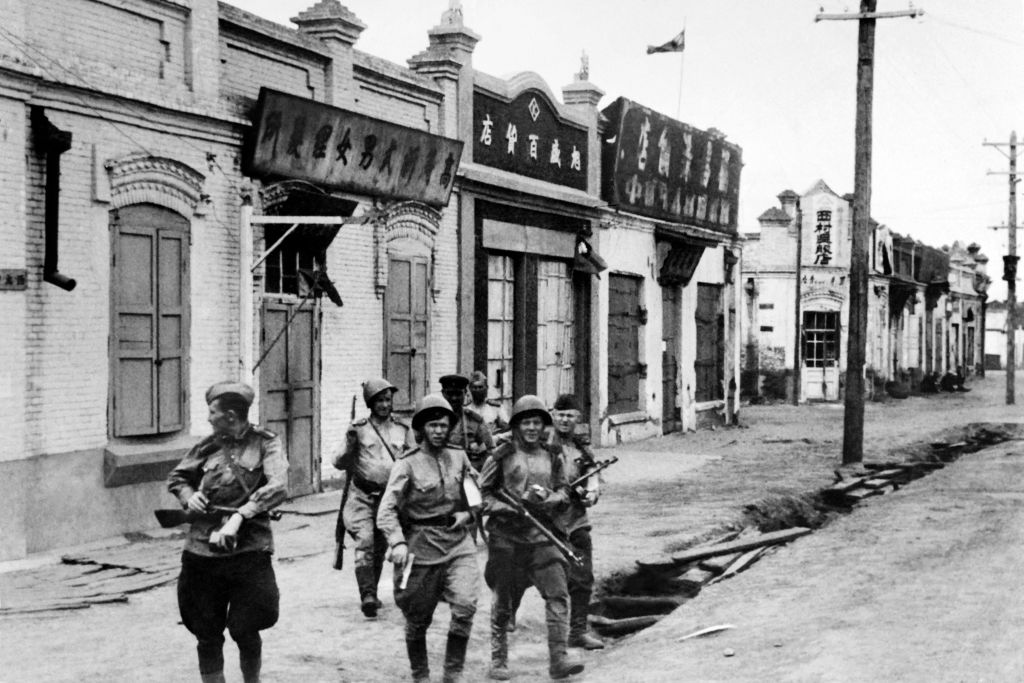daftandbarmy
Army.ca Fossil
- Reaction score
- 38,943
- Points
- 1,160
An interesting reveal in some history that may have been too much neglected .
So, the Pacific war and indeed the second world war ended on 15 August 1945? Wrong. Heavy fighting continued until 2 September and incurred, in just three weeks, the deaths of an estimated 350,000 to 400,000 people, including tens of thousands of Japanese civilians who died of illness and starvation. In aggregate, this was about the same number of British people who died during five years of war in Europe.
Reflecting the usual western centric view of the second world war it is largely forgotten in the narrative of the second world war that our allies, the Soviet Union, continued to fight Japan after 15 August 1945 in areas as far afield as Mongolia, Siberia, Manchuria (Manchukuo), North Korea, the southern half of Sakhalin and the Kuril islands.
The forgotten end of the second world war | The Spectator
Two weeks ago, VJ day (Victory over Japan day) celebrated the end of the Pacific War. On 15 August 1945 Emperor Hirohito, with his high-pitched voice and arcane royal language, which was heard by his people for the first time, announced Japan’s surrender. Huddled around their radios the Japanese heard Hirohito say:
Thus, Hirohito’s curmudgeonly acceptance of defeat ended with the implication that Japan’s surrender was not only to save itself but also ‘selflessly’ to save mankind. The emperor’s description of America’s ‘cruel bomb’ also helped set up Japan’s post-war narrative of victimhood.‘We have ordered our government to communicate to the governments of the United States, Great Britain, China and the Soviet Union that our Empire accepts the provisions of their Joint Declaration [The Potsdam Declaration 26 July 1945, signed by President Truman, Winston Churchill and Chiang Kai Shek, ordered Japan’s unconditional surrender or face ‘prompt and utter destruction’]… The war situation has developed not necessarily to Japan’s advantage… the Enemy has begun to employ a new and most cruel bomb [the atom bomb used on Hiroshima and Nagasaki]… should we continue to fight, it would result in an ultimate collapse and obliteration of the Japanese nation, but it would also lead to the total extinction of human civilisation.’
So, the Pacific war and indeed the second world war ended on 15 August 1945? Wrong. Heavy fighting continued until 2 September and incurred, in just three weeks, the deaths of an estimated 350,000 to 400,000 people, including tens of thousands of Japanese civilians who died of illness and starvation. In aggregate, this was about the same number of British people who died during five years of war in Europe.
Reflecting the usual western centric view of the second world war it is largely forgotten in the narrative of the second world war that our allies, the Soviet Union, continued to fight Japan after 15 August 1945 in areas as far afield as Mongolia, Siberia, Manchuria (Manchukuo), North Korea, the southern half of Sakhalin and the Kuril islands.

The forgotten end of the second world war
Two weeks ago, VJ day (Victory over Japan day) celebrated the end of the Pacific War. On 15 August 1945 Emperor Hirohito, with his high-pitched voice and arcane royal language, which was heard by his people for the first time, announced Japan’s surrender. Huddled around their radios the Japanese...www.spectator.co.uk





